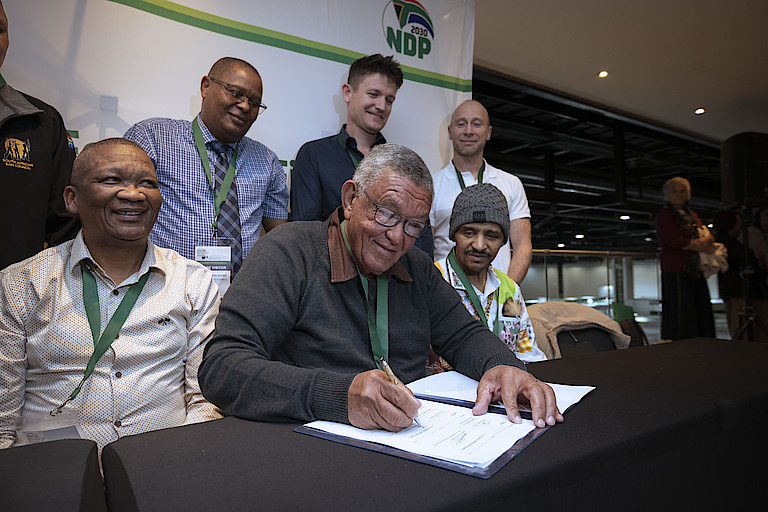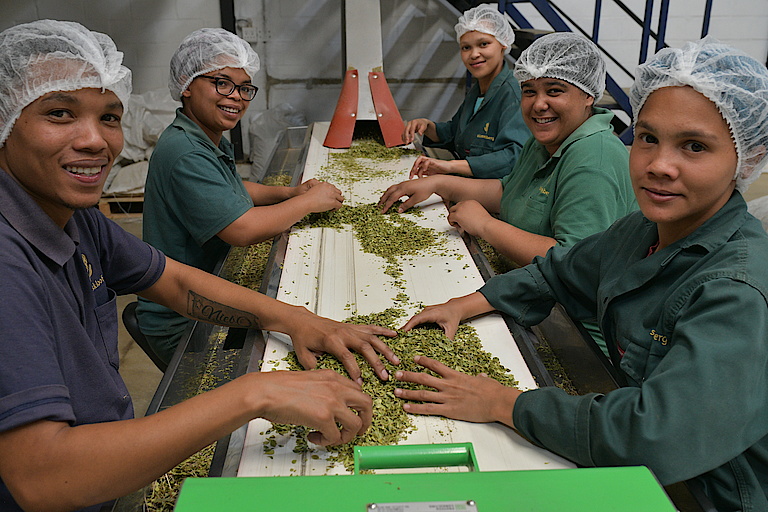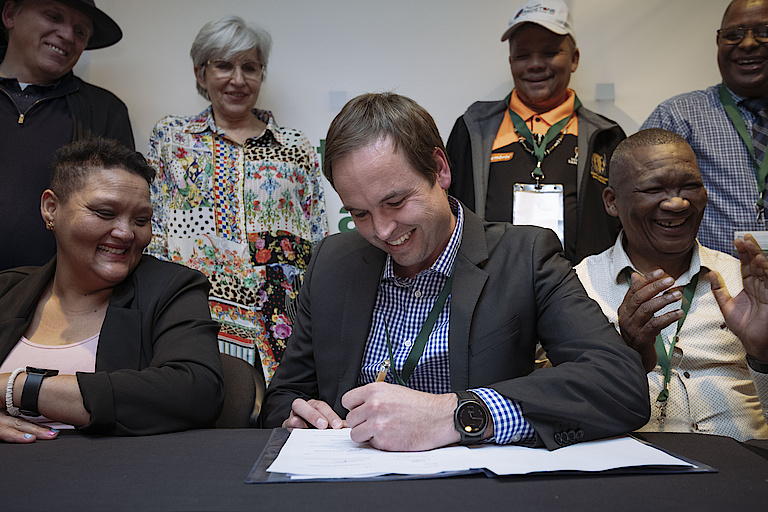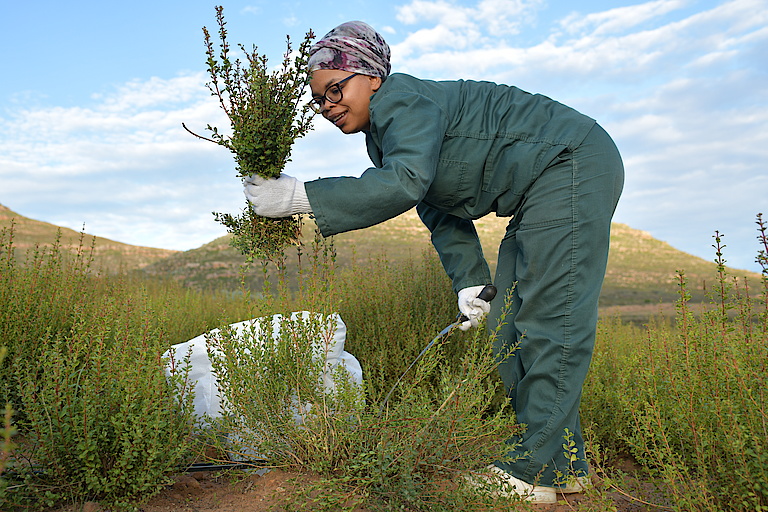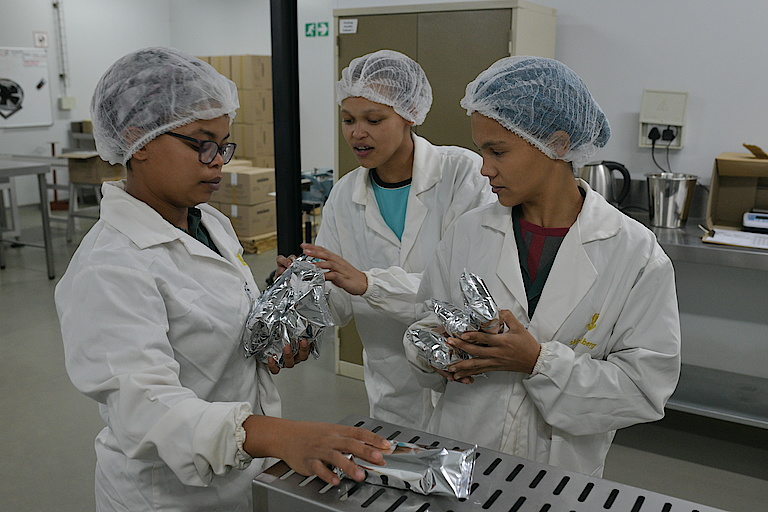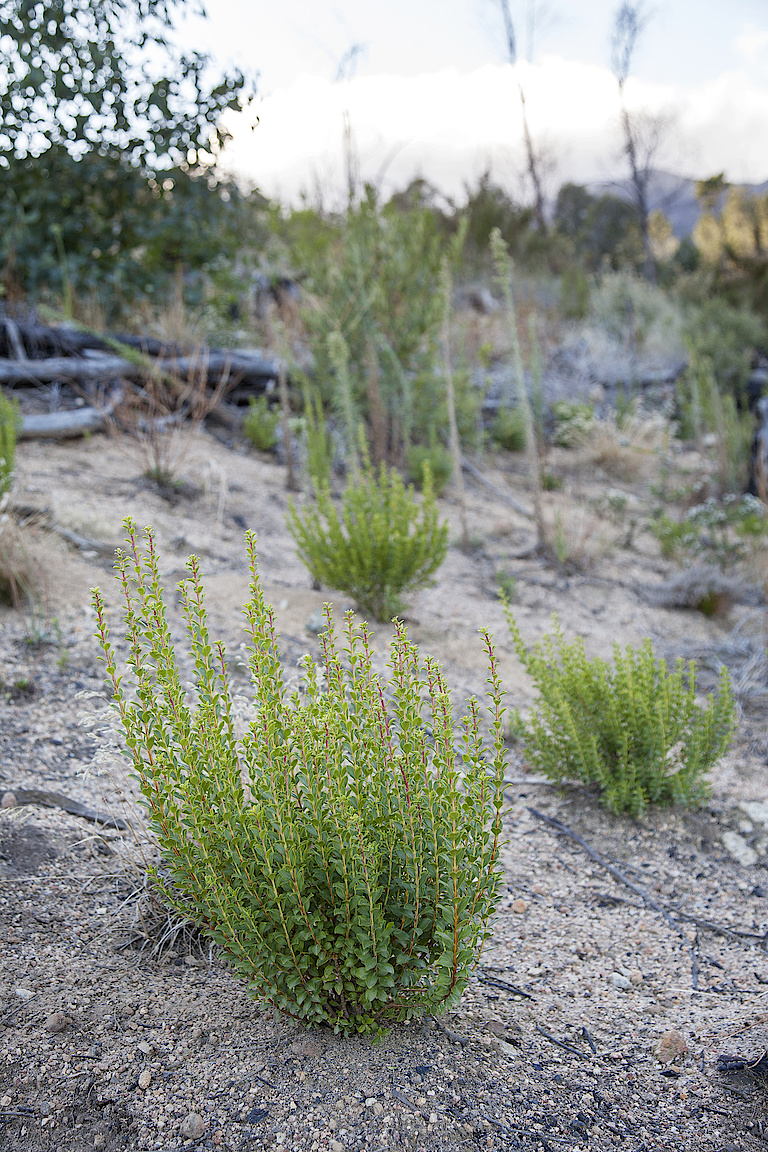Support offered by BioInnovation Africa
The BioInnovation Africa project facilitates meetings and roundtables, bringing together different actors of a particular value chain or sector to identify sectorial challenges, highlight common goals and develop commonly agreed good practices and working plans. As a neutral actor, the project ensures the equality of all stakeholders and emphasises the important role of each value chain actor, from traditional knowledge holders and local collectors to the large European companies.
Support offered by abiosa
ABioSA supports the species-specific sector development plans (SDP) developed through consultation with individuals and organisations with an interest in the South(ern) African biotrade sector. The SDPs create an enabling environment for sustainable development of the sector and for ABS-compliant SMMEs to access international markets. SDPs were developed for Buchu, Baobab, Honeybush, essential oils and two research projects.
Sector development example
Buchu, an indigenous plant resource used in the international fragrance and flavour industry, might not be known to many people outside South Africa – but this is about to change! While still a small sector, the Buchu industry has immense potential. To unlock this potential, bringing together a diverse range of stakeholders is essential, and two GIZ (German development cooperation agency) projects, ABioSA (Swiss funded) and BioInnovation Africa (German funded), are facilitating the way.
Through partnerships and dialogues, the two projects are bringing together stakeholders to identify common goals and jointly develop the sector. Stakeholders include the indigenous San and Khoi people as traditional knowledge holders, national Buchu producers, government, research institutions, and the international fragrance and flavour industry. The Buchu Association, supported by the two projects, represents 80% of national producers in South Africa and plays a vital role in connecting different stakeholders. "As producers we recognise the critical role of traditional knowledge holders, government, conservation organisations, researchers and regulators", said Paul Hartwig, chairman of the Buchu Association, reflecting the industry's commitment to collaboration. Additionally, they are in a partnership with the International Fragrance Association (IFRA) and the International Organization of the Flavour Industry (IOFI) to integrate the indigenous groups into the Buchu value chain and improve capacity for ethical sourcing and compliance in the industry through a Biodiversity Action Plan.
The discussions paved the way for a landmark Access and Benefit Sharing (ABS) agreement signed in 2023 at the African Biotrade Festival. The agreement, involving the Buchu Association, the National Khoi-San Council, the South African San Council, and the South African government (Department for Forestry, Fisheries and the Environment) guarantees that traditional knowledge holders benefit from the commercialization of Buchu, in accordance with the Nagoya Protocol. It is a significant step toward ensuring fair and inclusive development within the sector.
Beyond the ABS agreement, the sector dialogues and ABioSA's support incentivized the development of a Sector Development Plan for Buchu. This plan is a “roadmap that will help the industry to develop in a sustainable way, resulting in benefits across the value chain,“ explains Paul Hartwig. It focuses on six key pillars: sector management and governance, legislation and compliance, conservation and sustainable supply, market access, research and innovation, and quality and competitiveness. More than 30 people, representing companies, the public sector and research institutions, worked together to draft the Sector Development Plan in an intensive and participatory process in 2020. Natalie Feltman, Director of Bioprospecting & Biodiversity Economy at the governmental Department for Forestry, Fisheries and the Environment, confirms the benefit of this “sector-level approach and collaborative creation of sector development plans for key indigenous plant species”.
While the Buchu industry is still in its early stages, the groundwork has been laid for significant growth. With continued collaboration among all stakeholders, the sector, within the larger South African biotrade economy, is expected to flourish, creating jobs and ensuring the protection of traditional knowledge and the resource. The two projects have been essential in bringing together the stakeholders in dialogues and partnerships to support the sector.
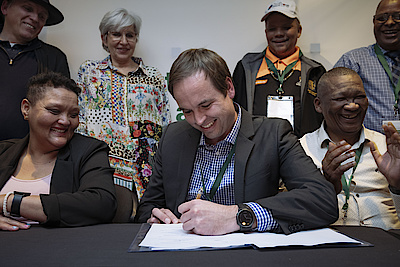
“The collaborative and consultative approach to developing a Sector Development Plan (SDP) for the Buchu industry has thus far been an interesting and valuable opportunity to incorporate and learn from the perspectives of all stakeholders involved.
It has been instrumental to have an external facilitator drive this process and we value the support provided by GIZ as part of its sector-level approach to biotrade development.”
Paul Hartwig - Chairman of the Buchu Association

